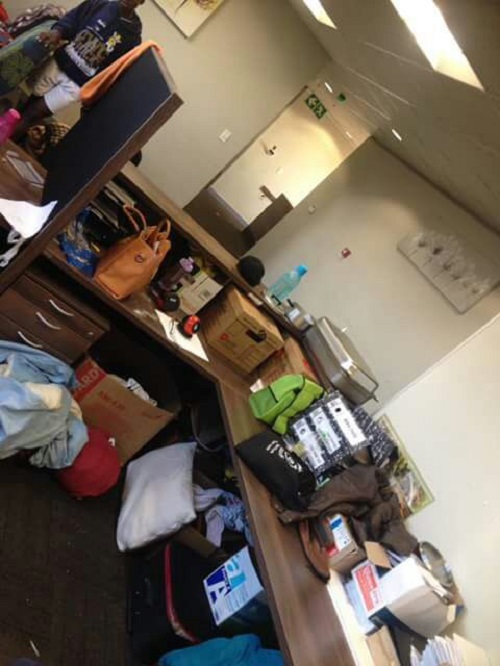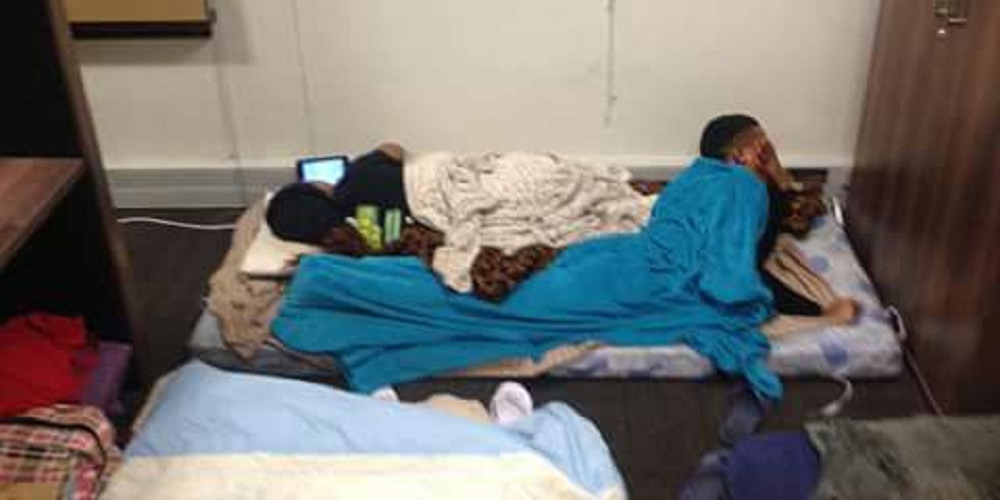A group of 40 students has been occupying ResLife, a partially damaged administration building at the University of the Western Cape (UWC) since Sunday. They say they won’t leave until they have been placed in acceptable accommodation.
The students had been renting rooms in private accommodation in surrounding areas last year. But the areas in which they were renting were not safe, they said. Zuiphe Kapa, the SRC deputy secretary, told The Daily Vox that students had been living in gang-prone areas and that some had been robbed on the way to school. “They don’t want to go back to those conditions now,†he said.

Students complained to deputy vice chancellor Professor Pamela Dube at the beginning of the year, and had a meeting with university management, residential services and the SRC. Students said the university agreed to involve the committee in the next round of placements, but did not deliver on this promise.
However, UWC spokesperson Luthando Tyhalibongo denied this. According to Tyhalibongo, the student housing committee was consulted during joint sessions with residential services management. “Recently, however, they have demanded the halting of the placement process and later wanted to take over the student placement function from staff members,†he said.
Tyhalibongo said the committee has illegally placed students in some rooms and has tried to intimidate others in order to include their preferred occupants. He said the students occupying the ResLife building are either not eligible for residence, are on a waiting list, lack funding, or have left campus residences due to poor academic performance.

The SRC has also received complaints of corruption. “I think last week, one student came to us and said that there are these allegations that you can’t get res if you can’t bribe,†said Kapa.
Tyhalibongo said the university is not aware of these allegations. He said students should report staff members who have solicited bribes to UWC’s Human Resources Department’s Employee Relations Office and that students who have offered or received bribes should be reported to the Proctor’s office.
Safety concerns
The university says students are not safe in the ResLife building, which was damaged in an arson attack during student protests last year. The building is currently undergoing repairs. “It is hazardous and unacceptable for students to stay in such conditions. Regardless of safety warnings, students have not heeded the advice and continue to stay in the building,” said Tyhalibongo.
The occupying students, who have received meals from the campus Gender Equity Unit, have complained that the building is cold, unsafe and unhygienic.
UWC has 22 000 students and currently allocates accommodation to 3 302 students. There are 2 100 spaces available through private accommodation. UWC is currently revamping an off-campus building which will offer 90 beds once it’s complete. The university plans to double the accommodation available to students over the next three years.









